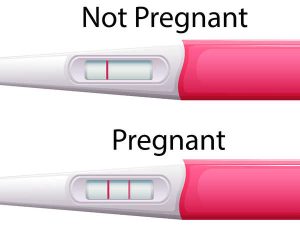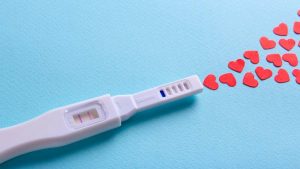Many women wonder if having irregular periods can affect their chances of getting pregnant. The answer is yes, but it depends on the cause of your irregular periods and how often you ovulate.
What are irregular periods?
Irregular periods are menstrual cycles that vary in length or timing from month to month. A normal menstrual cycle ranges from 21 to 38 days, with an average of 28 days. If your cycles are shorter than 21 days, longer than 38 days, or unpredictable, you may have irregular periods.
Irregular periods can make it harder to track your ovulation and fertile window, which are the best times to have sex if you want to conceive. Ovulation is when your ovaries release an egg that can be fertilized by sperm. Your fertile window is the six-day period that ends on the day of ovulation.
What causes irregular periods?
There are many possible causes of irregular periods, some of which may affect your fertility and some of which may not. Some common causes are:
– Stress: Stress can affect your hormones and disrupt your ovulation and menstrual cycle. Stress can also reduce your libido and make you less likely to have sex.
– Birth control pills: Birth control pills regulate your menstrual cycle by preventing ovulation and thinning your uterine lining. When you stop taking them, it may take some time for your natural cycle to resume and become regular again.
– Weight changes: Losing or gaining a lot of weight can affect your hormone levels and interfere with your ovulation and menstrual cycle. Being underweight or overweight can also reduce your fertility and increase your risk of pregnancy complications.
– Polycystic ovary syndrome (PCOS): PCOS is a hormonal disorder that causes multiple cysts to form on your ovaries, which can prevent them from releasing eggs regularly or at all. PCOS is one of the most common causes of infertility in women.
– Thyroid problems: Your thyroid gland produces hormones that regulate your metabolism and other bodily functions. If your thyroid is overactive (hyperthyroidism) or underactive (hypothyroidism), it can affect your ovulation and menstrual cycle.
– Other medical conditions: Some other medical conditions that can cause irregular periods include endometriosis, uterine fibroids, ovarian cysts, pelvic inflammatory disease, diabetes, and cancer.
How can you get pregnant if you have irregular periods?
If you have irregular periods, you can still get pregnant as long as you are ovulating. However, it may be more challenging to pinpoint your ovulation and fertile window, which can reduce your chances of conceiving each cycle.
Here are some tips to help you get pregnant if you have irregular periods:
– Track your ovulation: You can use various methods to track your ovulation, such as basal body temperature (BBT) charting, cervical mucus monitoring, ovulation predictor kits (OPKs), or fertility monitors. These methods can help you identify when you are most likely to ovulate and have sex accordingly.
– Have sex frequently: If you are not sure when you are ovulating, having sex every two or three days throughout your cycle can increase your chances of hitting your fertile window. Sperm can survive in the female reproductive tract for up to five days, so having sex before ovulation can also boost your odds of getting pregnant.
– See a doctor: If you have irregular periods and suspect that you may have an underlying condition that affects your fertility, such as PCOS or thyroid problems, you should see a doctor for diagnosis and treatment. A doctor can also prescribe fertility drugs or recommend assisted reproductive technologies (ART) such as intrauterine insemination (IUI) or in vitro fertilization (IVF) if needed.
Irregular periods do not necessarily mean that you cannot get pregnant, but they may make it more difficult. By tracking your ovulation, having sex frequently, and seeking medical help if necessary, you can improve your chances of conceiving even if you have irregular periods.





